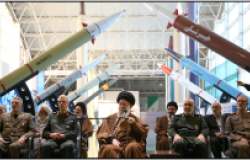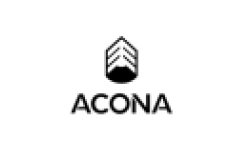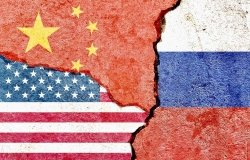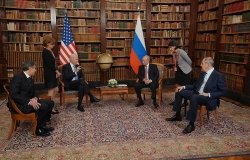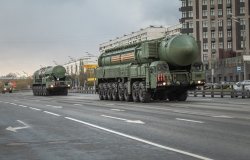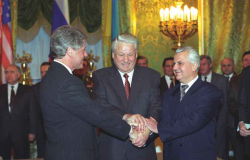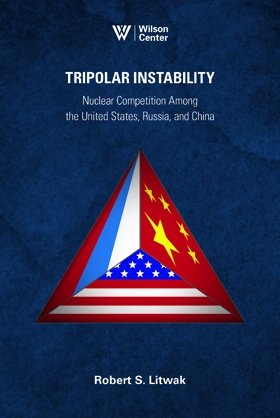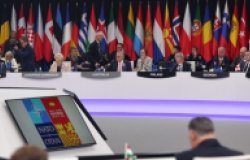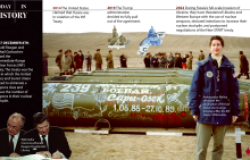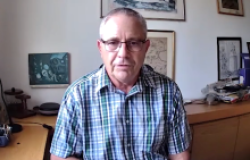Book Discussion: Preventing North Korea's Nuclear Breakout
With its ballistic missile and nuclear tests, North Korea is on the verge of a strategic breakout that could directly threaten the U.S. homeland. In Preventing North Korea’s Nuclear Breakout, Robert Litwak argues that the United States should pivot to serious diplomacy through a strategy of coercive engagement. A new conjunction of factors creates an opportunity to constrain the North’s capabilities through a freeze agreement—one that, in the near term, optimizes the interests among all the major parties.
Overview
Is North Korea’s Nuclear Breakout Already Here?
Coverage by John Milewski and Matt Starling with photographs by Christopher Cruz
Nuclear nonproliferation expert Robert Litwak’s latest book, “Preventing North Korea’s Nuclear Breakout,” introduces the concept of “coercive engagement” among a list of less than perfect options for dealing with the outlier regime’s growing capacity. As the author observed, during a conversation with New York Times National Security Correspondent David Sanger, the primary choices are to “bomb, negotiate, or acquiesce… and there are no good options.”
The conversation took place at a March 7, 2017 event co-hosted by the Wilson Center’s North Korea International Documentation Project, the Nuclear Proliferation International History Project, and the Hyundai Motor-Korea Foundation Center for Korean History and Public Policy.
Key Quotes
Robert Litwak
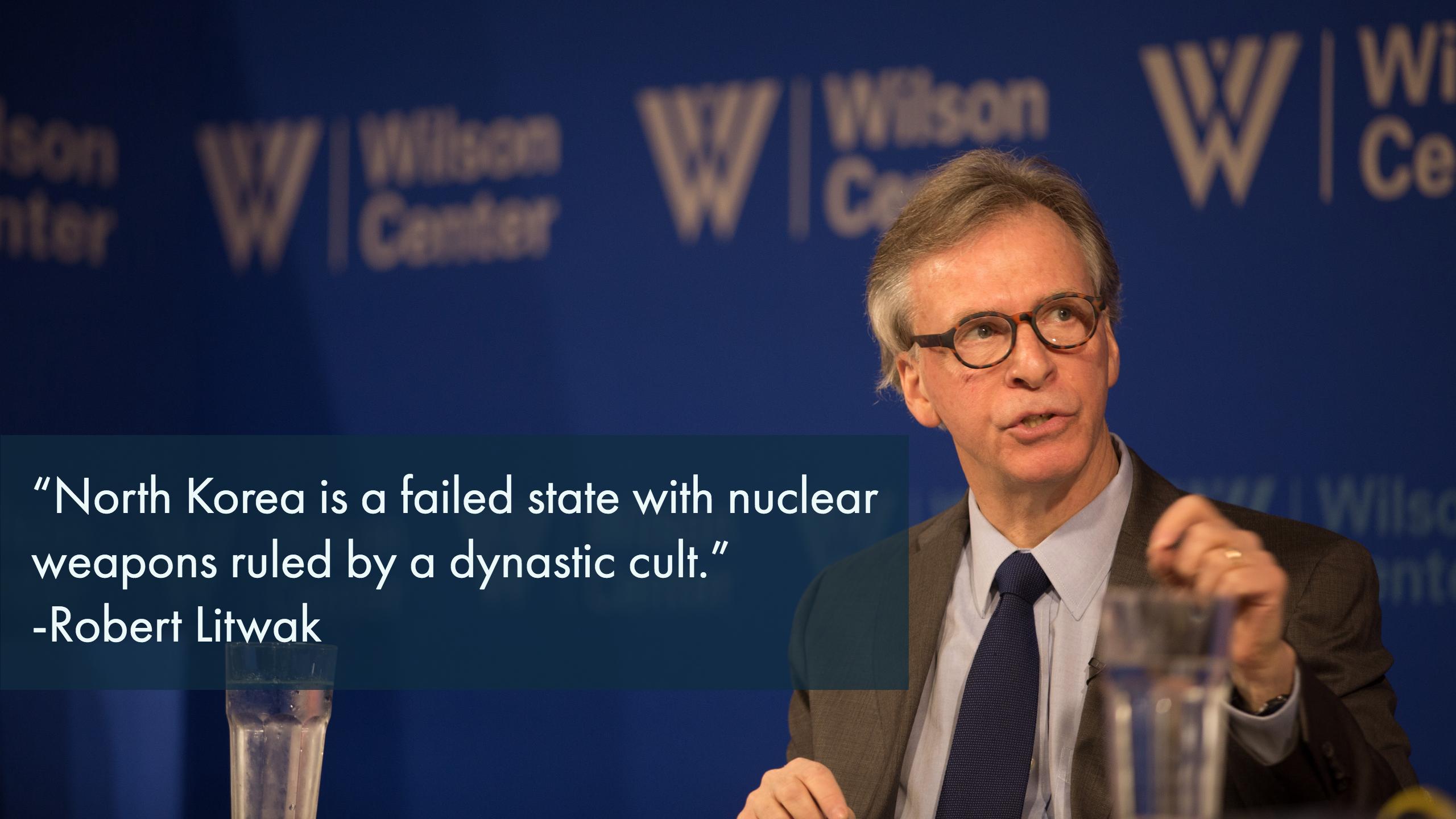
“North Korea, which first tested a nuclear weapon in 2006, is now on the verge of a nuclear breakout. Quantitatively by ramping up its warhead numbers, and qualitatively through mastery of warhead miniaturization and long range ballistic missiles.”
“When I got into this field, I couldn’t have conceived of North Korea acquiring a nuclear arsenal approaching half the size of Great Britain’s.”
“The nuclear issue is embedded in the broader question of North Korean societal evolution. The dilemma is these timelines are not in sync. The nuclear timeline is immediate and urgent, while the prospects for regime change are uncertain. We can’t wait for an indeterminate regime change timeline to play out while North Korea acquires a breakout capability.”
“The Iran nuclear deal was precisely that, a deal and not a bargain. The Iran nuclear deal was transactional and not transformational.”
"Now, China faces a hard choice. China can either cling to their talking point, “It’s America’s problem. Sort it out with North Korea,” or they can recognize their shared interest with the United States in preventing a North Korea nuclear breakout by applying meaningful pressure on Pyongyang to accept the freeze."
"North Korea is arguably 'Pakistan 2000, or Pakistan lite,' and what the freeze proposal intends to accomplish is to prevent North Korea from getting to 'Pakistan heavy.' "
"Squeezing North Korea harder has not been possible because China won’t cooperate with a strategy they view as running the risk of regime collapse."
David Sanger
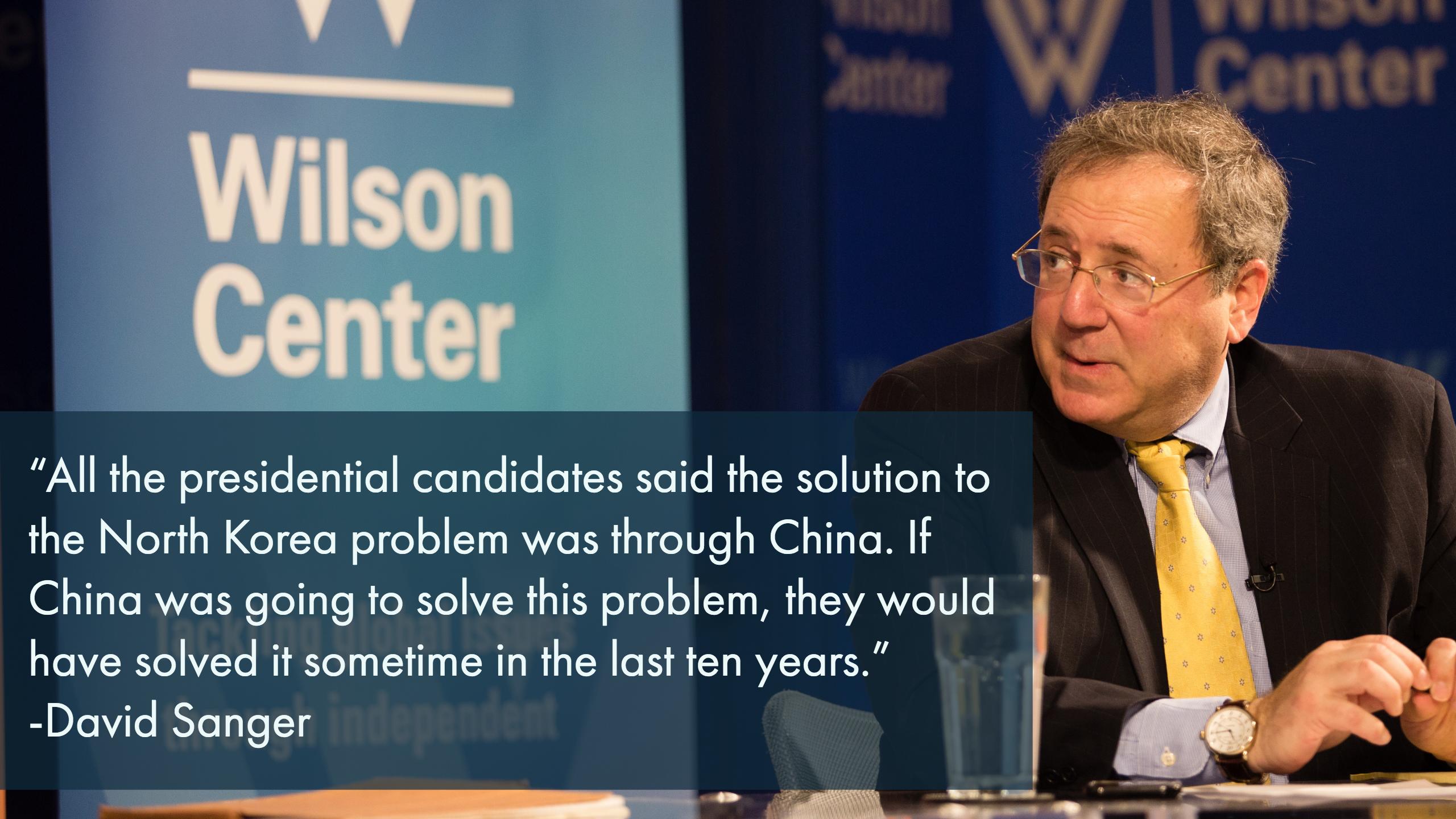
“The Obama administration thought about negotiating a North Korean nuclear freeze as well and they rejected it for two reasons. First, it would acknowledge North Korea as a nuclear state. Second, North Korea has a history of breaking out of these agreements. If anything, you are kicking the can down the road as Obama noted his four previous successors had done.”
“All the presidential candidates said the solution to the North Korea problem was through China. If China was going to solve this problem, they would have solved it sometime in the last ten years.”
"North Korea strikes me as different. They have a complete willingness to put up with extreme deprivation for their people."
Q & A with David Sanger
Following the book launch, Wilson Center NOW host and managing editor John Milewski spoke with moderator David Sanger about Litwak’s book and the notion of a North Korean “breakout.”
MILEWSKI – What constitutes a “nuclear breakout” and how close is North Korea to achieving one?
SANGER – I think we’re past breakout because we’re at the point where we think they’ve got 12 weapons and can get to 20 or so. At that moment, I think the old classifications of breakout don’t really make any difference.
MILEWSKI – Do you think Rob Litwak’s idea of “coercive engagement” is a viable option?
SANGER – It is, but it requires getting all of the players onto the same element of coercion. And what we’ve seen so far is that the Chinese, Japanese, South Koreans and the U.S. are not in sync.
MILEWSKI – How quickly can this situation come to a head?
SANGER – That’s a really hard question to know. We would have guessed at various other moments that it would come to a head and frequently the North Koreans pull back from the brink because they begin to worry about regime survival. So that’s where the pressure might actually be.
Hosted By

North Korea International Documentation Project
The North Korea International Documentation Project serves as an informational clearinghouse on North Korea for the scholarly and policymaking communities, disseminating documents on the DPRK from its former communist allies that provide valuable insight into the actions and nature of the North Korean state. It is part of the Wilson Center's History and Public Policy Program. Read more

Nuclear Proliferation International History Project
The Nuclear Proliferation International History Project is a global network of individuals and institutions engaged in the study of international nuclear history through archival documents, oral history interviews, and other empirical sources. At the Wilson Center, it is part of the Wilson Center's History and Public Policy Program. Read more

Hyundai Motor-Korea Foundation Center for Korean History and Public Policy
The Center for Korean History and Public Policy was established in 2015 with the generous support of the Hyundai Motor Company and the Korea Foundation to provide a coherent, long-term platform for improving historical understanding of Korea and informing the public policy debate on the Korean peninsula in the United States and beyond. Read more
Thank you for your interest in this event. Please send any feedback or questions to our Events staff.


